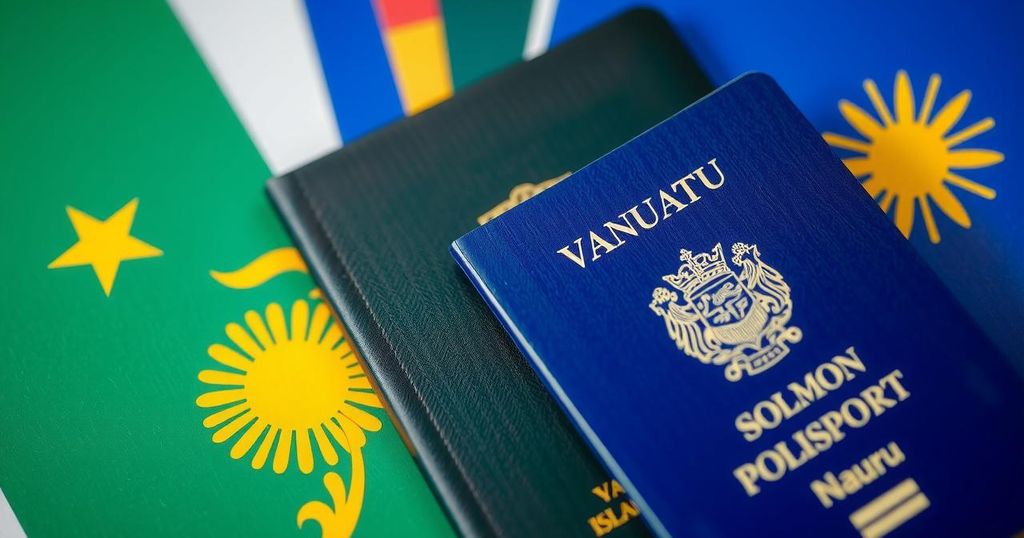Vanuatu’s recent loss of visa-free access to the EU highlights the dangers of poorly managed citizenship by investment (CBI) programs. As it faces economic and diplomatic consequences due to lax vetting, similar initiatives proposed by the Solomon Islands and Nauru may echo these missteps. Countries must implement robust checks to safeguard national integrity amidst the pursuit of enhanced revenue and international cooperation.
Earlier this month, Vanuatu faced significant ramifications as the European Parliament revoked its visa-free access to the Schengen area, marking it as the first country to experience such a sanction. This decision was attributed to Vanuatu’s insufficient collaboration regarding its controversial citizenship by investment (CBI) program, which has raised considerable security concerns due to lax applicant vetting processes. Paulo Cunha, the rapporteur for the European Parliament, stated, “Vanuatu has been selling its citizenship and abusing the European Union’s trust.”
Despite the criticism, Vanuatu markets its citizenship program as simple and readily accessible—currently listed online with minimal documentation requirements at approximately US$150,000. Meanwhile, countries like the Solomon Islands and Nauru are contemplating similar programs to bolster their economies, particularly as they grapple with the financial impacts of climate change. The Solomon Islands is reportedly drafting a CBI bill, leveraging its visa-free travel benefits to lure prospective applicants, while Nauru views CBI as a response to urgent fiscal needs related to climate resilience initiatives.
However, Vanuatu’s experience serves as a cautionary tale for these nations. The consequential loss of Vanuatu’s Schengen access not only threatens economic stability but also tarnishes diplomatic relations, which are essential for political credibility. Previous stakeholders in Vanuatu’s CBI program expressed dismay over the commodification of citizenship, recalling a time when their community faced statelessness. To avoid repeating Vanuatu’s mistakes, Solomon Islands and Nauru must consider thorough vetting and effective management processes, possibly engaging private sector partners to ensure that their proposed CBI schemes do not undermine national integrity or trust with international partners.
The article discusses the implications of Vanuatu’s loss of visa-free access to the Schengen area, a consequence of its flawed citizenship by investment (CBI) program which failed to rigorously vet applicants, leading to security risks identified by the European Parliament. This incident provides critical lessons for the Solomon Islands and Nauru, who are exploring their own CBI schemes in an effort to generate revenue, especially given their challenges in addressing climate change impacts. The report highlights the delicate balance between attracting foreign investment and maintaining national integrity while managing potential risks associated with citizenship commodification.
In conclusion, the recent developments surrounding Vanuatu’s CBI program highlight serious concerns regarding citizenship commodification and the importance of robust vetting processes. As the Solomon Islands and Nauru pursue similar initiatives, they must draw lessons from Vanuatu’s experience to develop sustainable and secure measures that prioritize national interests while fostering economic growth. Failure to do so may result in the same negative consequences faced by Vanuatu, jeopardizing future diplomatic and economic relations.
Original Source: www.rnz.co.nz






